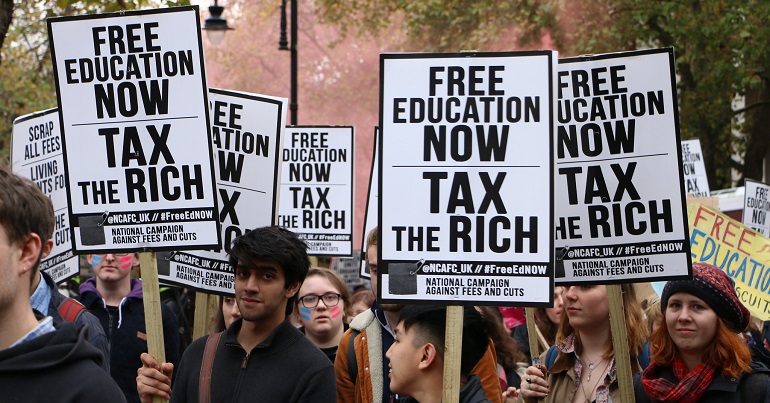Students vs the asset strippers: who will win?
This post first appeared on the new anti-cuts site False Economy which I’ve been a little involved in, and which you have to check out.
Two days ago, I stood outside Oxford’s Cheney School as almost the entire sixth-form walked out of their classes. Their younger school-mates too had turned up that morning with placards and with marching shoes and with pre-prepared chants. But their teachers had threatened severe punishments if they joined the protest.
The students complained that, as a result, there were “only” 200 of them. They marched into the city centre, and joined with 300 more school students from across Oxford before going on to occupy the county hall, shut down every bank in the city centre, and secure all of Oxfordshire’s front pages. And, of course, similar things happened across the country.
Today’s teenagers were written off as “the X box generation”. Day X has smashed that stereotype. What can have caused this? Well, it’s pretty simple. Chloe, one of the organisers from Cheney School, put it best: “Most people here come from ordinary backgrounds. We won’t be able to afford to go to university if they introduce these fees. I want to be able to go to university.”
The same, simple sentiment was expressed by those I saw kettled into Whitehall on Wednesday: “They’re taking our EMA away. How am I going to be able to finish my A-levels?”
And it was shared by the students I spoke to at the occupations of UCL, SOAS, Edinburgh, Birmingham and Oxford Universities. They use longer words, like “marketisation” and “neo-liberalism” but they mean the same thing – these cuts and fees and students debts will shut people out of their hopes and their dreams.
But there is also a basic economic problem with the massive cuts we are seeing to education. Because money spent on teaching doesn’t go into a black hole. Margaret Thatcher was famous for asset stripping – for “selling the family silver”. At the time, this meant selling physical assets – buildings, factories, whole industries.
But if the new economy is – as we are so often told – a knowledge economy, then these cuts are just a new kind of asset stripping: stripping a generation of the skills they will need to build new wealth, and a new society, from the ashes of the recession. The failure to invest in tomorrow is a classic way to destroy a company or a country. It is a failure that the government seems to be blundering into.
But it seems this generation has woken up to its plight. And, with Lib Dem MPs wobbling on fees, they might just have a victory in their sights.






Leave a Reply